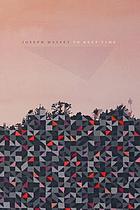 You may not know it since I don’t do a whole bunch of poetry reviews here, but I read poetry pretty regularly. My friend Cath in the Netherlands and I have a postal poetry exchange in which we choose a poem or two to send to the other every month or so. This year we decided to concentrate our poetry reading on poets we have never read before who are currently writing and who focus on nature in their poetry. I began the year with Wendell Berry and was a bit disappointed. His A Timbered Choir didn’t take flight for me. In the introduction to the book he claimed to be an amateur poet and, while there were a number of poems in the collection I did enjoy, he really isn’t the best of poets.
You may not know it since I don’t do a whole bunch of poetry reviews here, but I read poetry pretty regularly. My friend Cath in the Netherlands and I have a postal poetry exchange in which we choose a poem or two to send to the other every month or so. This year we decided to concentrate our poetry reading on poets we have never read before who are currently writing and who focus on nature in their poetry. I began the year with Wendell Berry and was a bit disappointed. His A Timbered Choir didn’t take flight for me. In the introduction to the book he claimed to be an amateur poet and, while there were a number of poems in the collection I did enjoy, he really isn’t the best of poets.
My next choice of poet, Joseph Massey, did not disappoint me. I don’t recall exactly how I came upon his work. I think I read about him in the Los Angeles Review of Books. He has a number of collections and since I had never read anything by him before it was difficult to choose. But when I came across a description of To Keep Time as being inspired by the landscape of Humboldt County, California, that is the one I decided to read.
What’s so special about Humboldt County? Well, when I graduated high school and decided to major in biology (I wanted to be a veterinarian) I decided to attend Humboldt State University in Arcata, California. You change a lot when you are eighteen and far away from home for the first time. Before my freshman year was out I had changed my major to English and decided I was going to teach. It meant going to a different university in Los Angeles my sophomore and following years. Nonetheless, my year at Humboldt was amazing and unforgettable.
HSU sits on a hill looking over the Pacific ocean. Stretching out behind the school are acres and acres of redwood forest. It is hands down one of the most beautiful places I have ever lived in my life. I would live there again if I could. So, poetry inspired by this landscape of ocean, redwoods, mountains, rain, fog and damp, yes please!
Massey’s poems have a haiku sensibility to them. Some are short and some are multi-parted. They are contemplative and surprising. It is the unexpectedness that I found so utterly marvelous; an image, a turn of phrase. I loved most when he would mix senses, for instance in “Microclimates”:
I squint
to hear the ocean
pierce an aperture
in skynot wide enough
for words—even a word—
to escape.
Also from “Microclimates”:
Bewilder-
ment persists
in this persistent
pressure gradient.
What I want to say
I can’t see to sayI can’t see to say it.
I also love the alliteration and the way he takes a word like “persists” and then changes it to “persistent.” Is there a word for that technique? I have come across it before in other poets and it is something that always gives me a little thrill.
Here is “Anchoritic”:
Listening to wind
dislodge objects
in the dark around
my room, I want
to think thinking
is enough to locate
a world, but it isn’t.
It isn’t this one.
It isn’t this world,
weather.
The word “anchoritic” is an adjective derived from the noun “anchorite.” An anchorite is a religious recluse, someone who has left the secular world to focus on their spiritual life. The poem itself is not particularly religious, but the title opens all sorts of suggestions and avenues of thought both secular and spiritual. It also suggests “anchor” as in anchored in place, but also a physical stability in the wind that is dislodging objects that contrasts beautifully with the thinking that is clearly unanchored. As you can see, the poems might be short but Massey packs in quite a lot!
I very much enjoyed To Keep Time and plan to read more of Massey’s work in the future. It is a happy occasion to discover a “new” poet.
Filed under: Books, Poetry, Reviews Tagged: Humboldt County, Joseph Massey, nature


